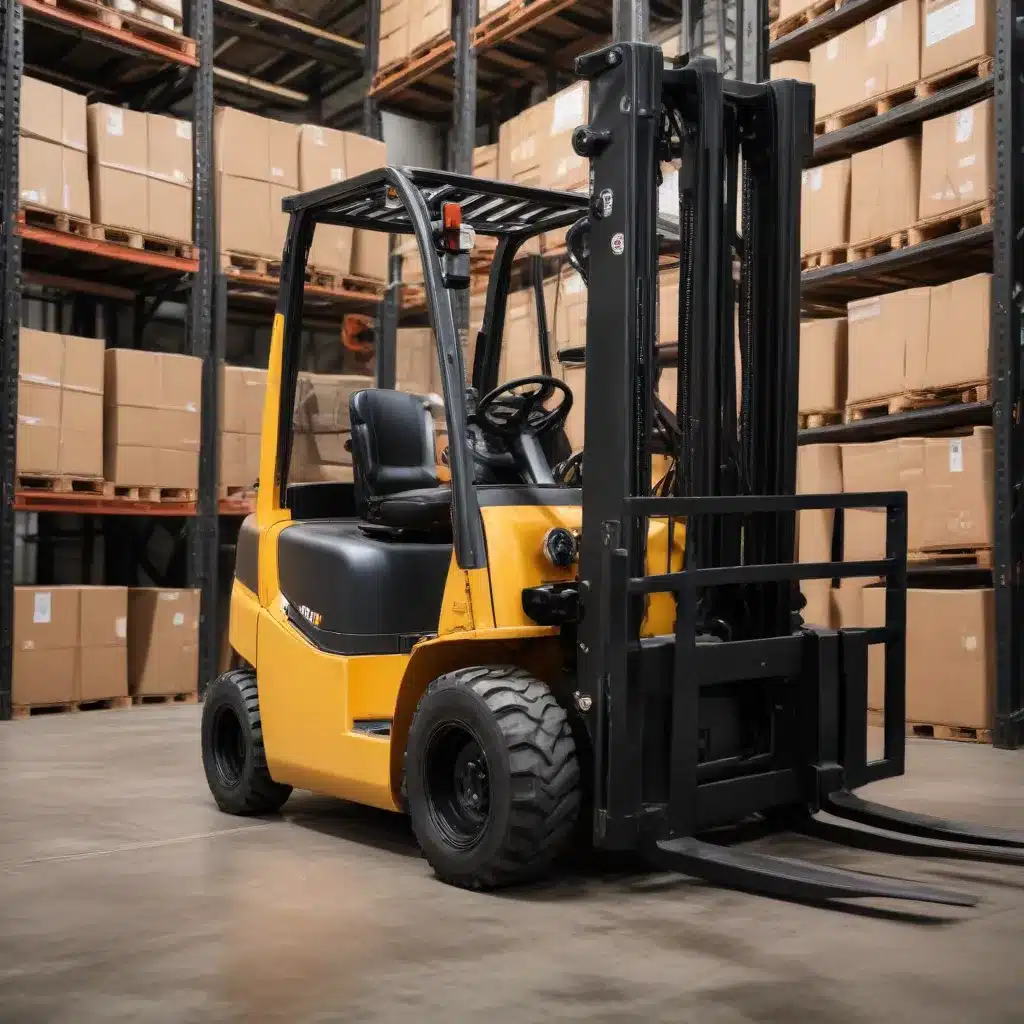
Forklift Operator Skill Gap Analysis and Upskilling: Identifying and Addressing Training Needs for Improved Capabilities
The Evolving Forklift Industry: Upskilling Operators for Success
In the rapidly changing world of material handling, forklift operators play a pivotal role in warehouse efficiency, productivity, and safety. As automation, advanced technology, and new industry regulations reshape the landscape, it has become increasingly crucial for companies to proactively assess and address the skill gaps among their forklift workforce. By implementing strategic upskilling initiatives, organizations can unlock the full potential of their employees, enhance operational excellence, and maintain a competitive edge.
Uncovering the Skill Gap: A Comprehensive Analysis
Identifying the skill gaps within your forklift operator workforce is the first critical step towards effective upskilling. This process involves a thorough evaluation of current competencies, emerging industry demands, and future skill requirements. Forklift Reviews recommends that companies leverage a combination of techniques, such as:
-
Employee Assessments: Evaluate the technical proficiencies, safety awareness, and problem-solving abilities of your forklift operators through structured assessments and hands-on evaluations.
-
Industry Benchmarking: Analyze industry standards, regulatory changes, and best practices to determine the skills and knowledge required for successful forklift operation in the modern landscape.
-
Workflow Analysis: Observe and document the day-to-day workflows, challenges, and pain points experienced by forklift operators to identify areas for improvement.
-
Stakeholder Feedback: Engage with supervisors, safety managers, and logistics teams to gather insights into the evolving needs and expectations for forklift operators.
By conducting this comprehensive skill gap analysis, organizations can develop a clear understanding of the specific training requirements and priorities for their forklift workforce.
Designing Effective Upskilling Programs
With the skill gap identified, the next step is to design and implement targeted upskilling programs that address the identified needs. Effective upskilling initiatives should encompass a blend of technical, safety, and soft-skill development, ensuring that forklift operators are equipped to handle the demands of the modern workplace.
Technical Skill Development
Forklift operators must possess a strong command of technical skills, including:
- Advanced Forklift Operations: Training on the latest forklift models, features, and technology to enhance productivity and efficiency.
- Maintenance and Troubleshooting: Comprehensive training on preventive maintenance, problem diagnosis, and minor repairs to minimize downtime.
- Load Handling and Optimization: Instruction on load assessment, weight distribution, and storage optimization to improve safety and space utilization.
Safety-Focused Training
Ensuring the safety of forklift operators, co-workers, and the overall work environment is paramount. Upskilling programs should prioritize:
- Regulatory Compliance: Educating operators on industry standards, safety regulations, and best practices to maintain a compliant and secure workplace.
- Situational Awareness: Enhancing operators’ ability to identify and mitigate potential hazards, adapt to changing conditions, and respond effectively to emergencies.
- Risk Management: Developing a proactive mindset and decision-making skills to anticipate and prevent accidents or incidents.
Soft-Skill Development
In addition to technical proficiencies, forklift operators must possess strong soft skills to excel in their roles. Upskilling programs should incorporate:
- Communication and Teamwork: Training to improve interpersonal skills, collaborative problem-solving, and effective communication with colleagues and supervisors.
- Critical Thinking and Decision-Making: Developing analytical abilities, problem-solving techniques, and decision-making frameworks to handle complex situations.
- Adaptability and Continuous Learning: Fostering a growth mindset and the willingness to embrace new technologies, procedures, and industry changes.
By delivering a comprehensive upskilling program that addresses technical, safety, and soft-skill development, organizations can empower their forklift operators to become more productive, efficient, and safety-conscious contributors to the overall material handling ecosystem.
Implementing and Evaluating Upskilling Initiatives
Successful implementation of upskilling programs requires a systematic approach that incorporates ongoing monitoring, feedback, and continuous improvement. Forklift Reviews recommends the following steps:
-
Collaborative Partnerships: Establish strong partnerships with training providers, industry experts, and regulatory bodies to ensure the relevance and effectiveness of the upskilling programs.
-
Blended Learning Approaches: Utilize a combination of in-person, hands-on training, online modules, and on-the-job learning opportunities to cater to diverse learning styles and schedules.
-
Performance Evaluation: Implement robust assessment methods, such as pre- and post-training evaluations, to measure the impact of upskilling initiatives on operator competencies and workplace performance.
-
Continuous Feedback and Refinement: Regularly gather feedback from operators, supervisors, and safety personnel to identify areas for improvement and continuously refine the upskilling programs.
-
Knowledge Sharing and Retention: Encourage a culture of continuous learning by providing ongoing training opportunities, knowledge-sharing platforms, and mentorship programs to sustain the acquired skills and expertise.
By adopting a holistic and data-driven approach to upskilling, organizations can unlock the full potential of their forklift operators, drive operational excellence, and maintain a competitive advantage in the ever-evolving material handling industry.
Forklift Operator Upskilling: A Competitive Advantage
In today’s dynamic forklift industry, the ability to anticipate and address skill gaps through strategic upskilling initiatives is a true competitive advantage. By investing in the continuous development of their forklift operators, organizations can:
-
Enhance Productivity and Efficiency: Upskilled operators can handle advanced forklift features, optimize load management, and streamline workflows to boost overall productivity and operational efficiency.
-
Improve Safety and Compliance: Comprehensive safety training and a safety-focused mindset among operators can significantly reduce the risk of accidents and maintain compliance with industry regulations.
-
Foster Employee Engagement and Retention: Providing opportunities for professional growth and skill development demonstrates a commitment to employee well-being, leading to increased job satisfaction, loyalty, and retention.
-
Adapt to Industry Disruptions: Agile upskilling programs empower forklift operators to stay ahead of technological advancements, regulatory changes, and other industry transformations, ensuring the organization’s long-term competitiveness.
As the forklift industry continues to evolve, Forklift Reviews encourages organizations to proactively invest in the upskilling of their forklift operators. By addressing skill gaps and empowering their workforce, companies can unlock a sustainable competitive advantage, enhance operational excellence, and position themselves for long-term success in the dynamic material handling landscape.

